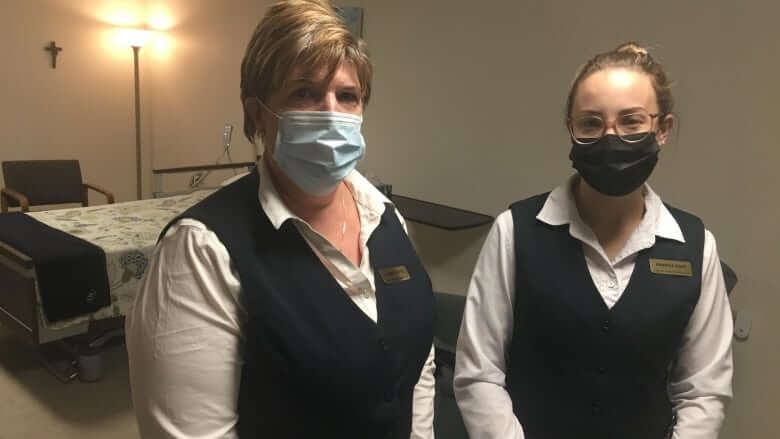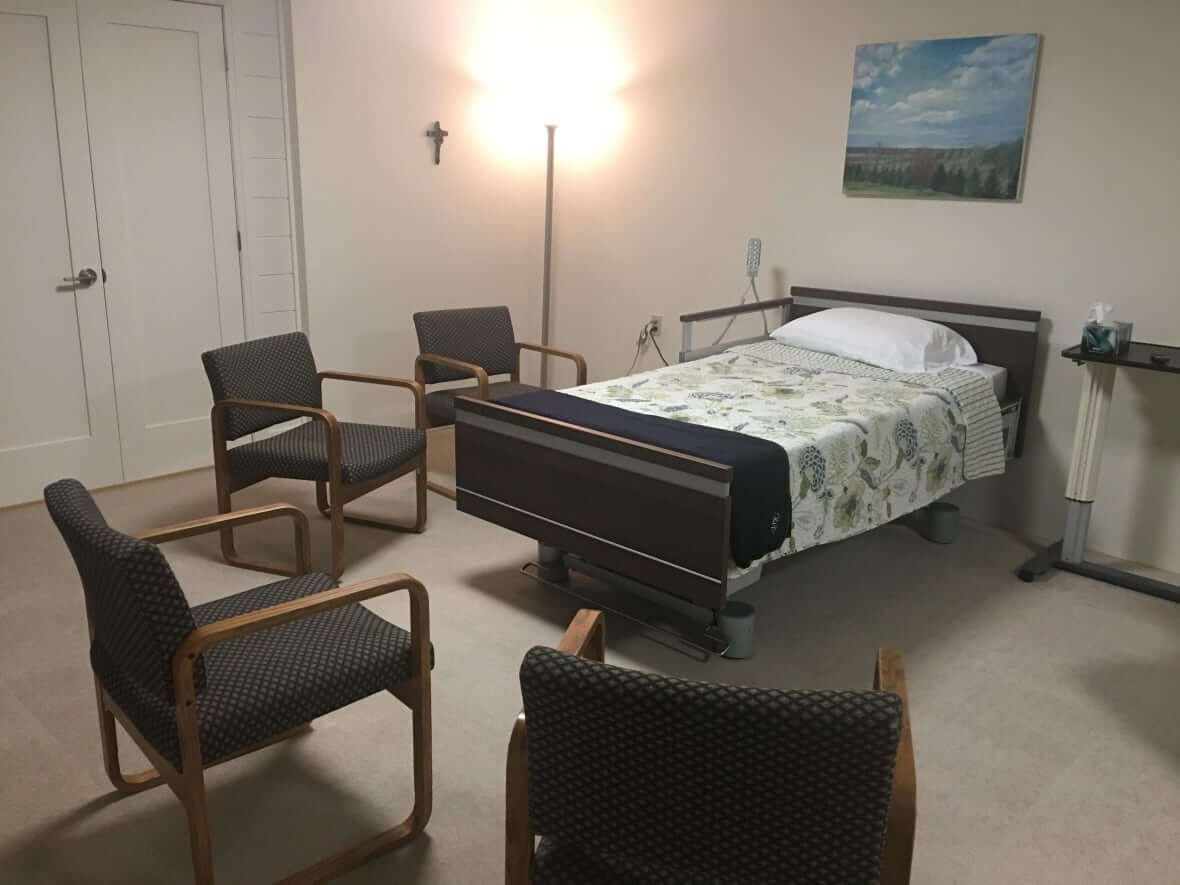Funeral homes pivot to offer rooms for medically assisted deaths

As the COVID-19 pandemic began to take hold in the spring of 2020, London, Ont., funeral home owner Paul Needham started to receive a new kind of service request from families.
At first it was a few calls, but then as the lockdowns and restrictions on gatherings grew, it became a frequent ask at the Northview Funeral Chapel: Can you provide a quiet, comfortable room where a loved one can have a medically assisted death?
“A lot of times the families were in a bind,” said Needham. “They wanted the procedure, but had no place to go. Nobody was willing to accommodate them due to the shutdown.”
Medical Assistance in Dying (MAID) has been legal in Canada since 2016.
Since then, the number of MAID deaths has grown steadily. In 2016 just over 1,000 were reported in Canada. In 2020, that number grew to just under 7,600.
Almost half of MAID deaths (46.7 per cent in 2020) happen at home while hospitals (28 per cent) and palliative care facilities like hospices (17 per cent) are also common settings.
But Needham noticed that some clients who didn’t want to end their life in a clinical setting also wanted to avoid having the death happen at home.

“Sometimes they’d say things like ‘Every time I look at that bed or every time I walk into that room I would be re-living it.’ I think they just felt there would be a stigma there afterward and they wanted to avoid that,” he said.
Other clients expressed discomfort at going into a hospital or hospice as COVID-19 forced them to deal with all kinds of access restrictions, Needham said.
Wanting to meet a growing need, Needham began to offer rooms for rent at his funeral home where MAID procedures could take place.
Since early 2020, Needham has provided rooms for 23 medically assisted deaths.
“Family members can be right there with their loved ones,” he said. “I suggest they can make it how they want it, bring some of your favourite music, bring flowers, bring some food or if you like, bring a bottle of wine. This is this person’s last day on Earth. You want to take everything into account and consider as many things as possible.”
Moving to add the service
David Mullen, owner of A. Millard George Funeral Home, has also noticed the trend. He’s working to set up a room where families can have a medically assisted death at his funeral home in Old South.
“Phone calls for the service started in 2018,” he said. “They continued to increase through COVID-19. We put a lot of thought into it and we felt this was something we could offer that would help the families we serve.”
Working on the advice of a doctor who performs MAID procedures, Mullen converted a space formerly used as a showroom for caskets into a comfortable place for end-of-life procedures. He brought in a hospital bed and reclining chair, soft lighting, some local art, furniture for guests and a television monitor to display family photos. He can provide snacks and a separate seating area for family members who want to be close, but not at the bedside, when the final moment comes.
Mullen hopes to have the room ready for clients by the new year.
Both Mullen and Needham said clients who rent the room for a MAID procedure are not obligated or pressured to use any other service at their funeral homes. If they want the body transferred elsewhere for a funeral service, burial or cremation, they can accommodate that.
Darcy Harris is a professor of thanatology — the study of death and dying — at King’s University College in London, Ont. She also worked as a hospice nurse earlier in her career. She says the trend makes sense.
“Funeral homes are usually very nicely appointed and the staff are service-orientated and are comfortable talking about death,” she said.
Wishes she had the option for her husband
Debbie Pettit works at A. Millard George Funeral Home and three years ago, found herself in need of a place where her husband could have a medically assisted death. After a year and a half of palliative home care, her husband didn’t want to end his life at home or at the hospital.
“It was a sterile setting,” she said. “The bed had the curtain around it, that really sticks with you. There was a gentleman in the next room that was waiting to have it done as well. I look round here, it’s such a more peaceful atmosphere.”





Redes Sociais - Comentários